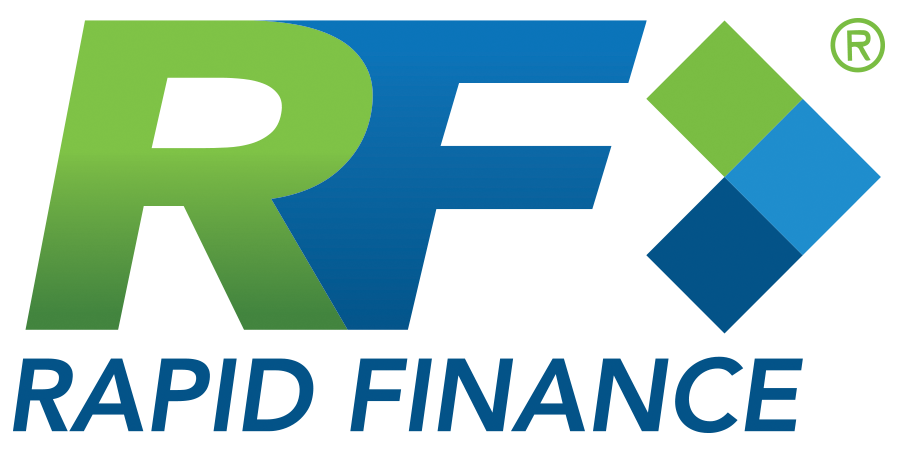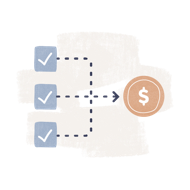The Best Business Credit Cards for Startups

Can You Get A Business Loan With No Credit Check?
Maybe you need a loan to start a new business or launch a new product or division, or perhaps you are dealing with the unexpected, like a dip in revenue, costly repairs and renovations, or staffing needs. Regardless of why you need the extra capital, there’s one thing that will likely govern how easy—or difficult—it is to get funding: your credit.
Getting approved for traditional business loans can be a challenge even for businesses with solid qualifications. Banks and other small business lenders often want businesses to be in operation for at least two years and they prefer to lend to small business owners with good credit.
There are loans that don’t care about your personal credit scores, and that don’t penalize you because you’ve made a few financial mistakes in your past, but you need to understand how these business financing options work and where to find them.
Why Consider No Credit Check Business Financing?
Some lenders check personal credit, some check business credit scores and some check both. Only a few financing sources don’t check credit at all when reviewing business loan applications.
HUnfortunately, for some business owners, a credit check could be out of the question. Some simply don’t want a hard inquiry to affect their personal credit scores, and others know their poor credit scores will likely immediately disqualify them.
In other cases, business owners are looking for loans that don’t require personal guarantees. Their goal is to separate their business and personal finances completely.
All are valid reasons for wanting to avoid a credit check. But the reality is that most business lending options do review personal credit. And it’s especially true for startups, or for businesses with few employees or without significant time in business and/or revenues.
Still, there are a variety of options, including working capital loans through your payment processor, merchant cash advances, invoice factoring, and equipment loans that can be much more credit flexible.
Here we’ll focus primarily on business loan options for small business owners with poor credit. These small business loans typically consider other qualifying criteria like annual revenues to approve applicants. We’ll also feature business financing that doesn’t require a personal credit check, and we’ll describe types of financing that don’t require personal guarantees.
Pros and Cons of Getting a Business Loan with No Credit Check
Again, it is not always easy to find small business financing that doesn’t check personal credit and/or require good personal credit scores. But when you do, what are the benefits of these loans…and what are the drawbacks?
Pros
- Some available to those with bad credit/no credit history
- Often approved very quickly
Cons
Can I Get A Business Loan With Bad Personal Credit?
Many lenders check credit to determine whether your personal credit scores meet their minimum requirements. Negative items on your personal credit history, such as late payments, collection accounts, or bankruptcies, may lower your scores and put you in the high risk category.
But it’s also important to keep in mind that sometimes business lenders check personal credit primarily to rule out serious problems, like an unfinished bankruptcy or to deter fraud. In those cases, low credit scores may be perfectly acceptable.
How to Know if You Have Good or Bad Credit
If you haven’t checked your credit, it’s a good idea to do so before you begin the application process. Every lender has its own minimum credit score requirements, and each will decide what credit scores qualify as “good credit” or “bad credit.”
Generally, those with scores around 650 and above have more options available. Those with scores in the 500s or lower have fewer options. And, as we will share in a moment, a few loan options don’t check credit at all.
Hard vs. Soft Inquiries and the Impact on Your Credit Score
The obvious benefit to no credit check loans is that you don’t have a hard credit check on your consumer credit reports. Inquiries may slightly lower your credit scores, though the effect is often temporary.
A hard inquiry is one that will affect your credit scores, while soft inquiries don’t. Soft inquiries may be used by some small business lenders to screen applicants while hard inquiries often take place once the business owner decides to apply for financing.
Inquiries typically lower credit scores by a few points (less than 10 points is common) and most credit scoring models don’t count inquiries that are more than a year old.
Types of No Credit Check Business Loans
There are a couple of types of financing that don’t typically check personal credit:
Vendor or Supplier Financing
Here, your vendors or suppliers will offer short-term financing for products you purchase directly from them. Net-30 financing terms give the business 30 days to pay, for example. This type of financing does not typically require good credit and there is often no personal credit check. A business credit check may or may not be required.
As a plus, this financing usually does not require a personal guarantee.
Crowdfunding
Most crowdfunding sites do not require a personal credit check. You can raise money for your business either by offering rewards or equity in your business. Loan-based crowdfunding is also a possibility though a credit check is more likely in that scenario. Personal guarantees are rarely required as well.
ARead: Kiva offers 0% no fee loans up to $15000 to businesses in the US.
AIn addition there are several types of financing that tend to have very flexible credit requirements:
Business Cash Advances
Here your business can get an advance against future revenues, based on historic revenues. Business cash advances (or merchant cash advances) are typically available to businesses with strong cash flow, backed up by business bank account statements. While there may be a performance guarantee, a personal guarantee is rarely required.
Invoice Financing
This type of financing allows businesses that invoice other businesses to get paid faster. Companies offering invoice financing will advance funds from the invoice immediately and in some cases even collect the payment directly from the client. Chances are no personal guarantee is required, and factoring may even be made on a non-recourse basis, which means the business is not liable for uncollectible invoices.
Microloans
These smaller loans are often made by non-profit lenders (CDFIs) that try to help underserved borrowers. Microlenders are sometimes able to work with borrowers with less than perfect credit. A personal guarantee may be required, so be sure to check.
FAQs
Commercial property insurance is designed to help you replace property after damage or theft, Including:
- Your building
- Equipment (computers, furnishings etc.)
- Products and inventory
Product liability insurance covers the costs of legal defense resulting from a complaint about a product you manufacture or sell, including:
- Injury or illness
- Property damage
- Wrongful death
Professional liability insurance covers the cost of defending against a complaint about your services or performance, including:
- Negligence
- Misrepresentation
- Inaccurate advice
General liability insurance covers injury or damage connected to your operations or the space where you do business, including:
- Physical injury
- Property damage
- Personal injury from your communications (libel, etc.)
Commercial auto insurance covers company-owned or leased vehicles used by you or your employees, and includes:
- Bodily injury caused to other people
- Property damage caused to other people’s property
- Damages to your vehicles
Cyber insurance covers costs associated with a data breach or other cyber attack and covers things like:
- Rebuilding your network · Notifying and compensating customers
- Paying regulatory fines & legal costs
- Handling crisis management and PR
Workers’ compensation insurance is required in almost every state and covers employees who are injured or become ill on the job, including:
- Provides lost wages and disability benefits
- Provides medical expenses, including ongoing care costs
- Shields you from employee lawsuits




Hi
I’m just starting a business and I don’t have any income coming in for it yet. Which credit card or product would you recommend to get started to buy things for the company?
Most small business credit card applications will allow you to include income from all sources, not just the business. If you have income from other sources that could help you qualify.
I have two vendor accounts that are not reported on my business report. How do I get these accounts added to my business report through my Established Business plan with Nav?
Unfortunately Nav cannot report other vendors accounts. (We report for our customers with Business Boost or Business Loan Builder accounts.) You’ll need to ask those vendors to report directly to credit bureaus.
I’m looking at the capital one spark cash select business card. Do you have any idea what credit is needed?? I’m getting so many different scales on the internet. Thank you
The issuers aren’t eager to publish minimum credit scores (and the score you see may be different than the one they use). It may help to have a Nav account and see which cards are a good match. It’s not full preapproval but it should help to get you in the ballpark.
Capital one spark did not approve me due to a open bankruptcy on my personal credit
I’m sorry to hear that.
Hi I just heard about Nav , I have a decent credit FICO 740; also I have my LLC company with out credit history since 2007 was launched, my question is about create a credit to my company with just my EIN and create a trade lines separate from my personal credit, it’s possible?
Thanks
Yes try capital one spark.